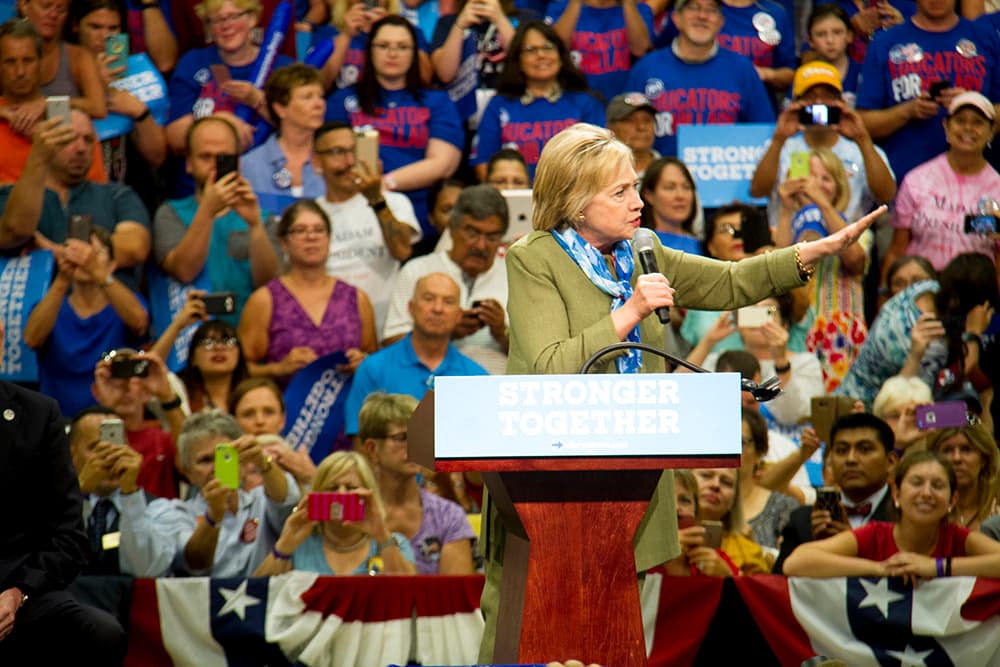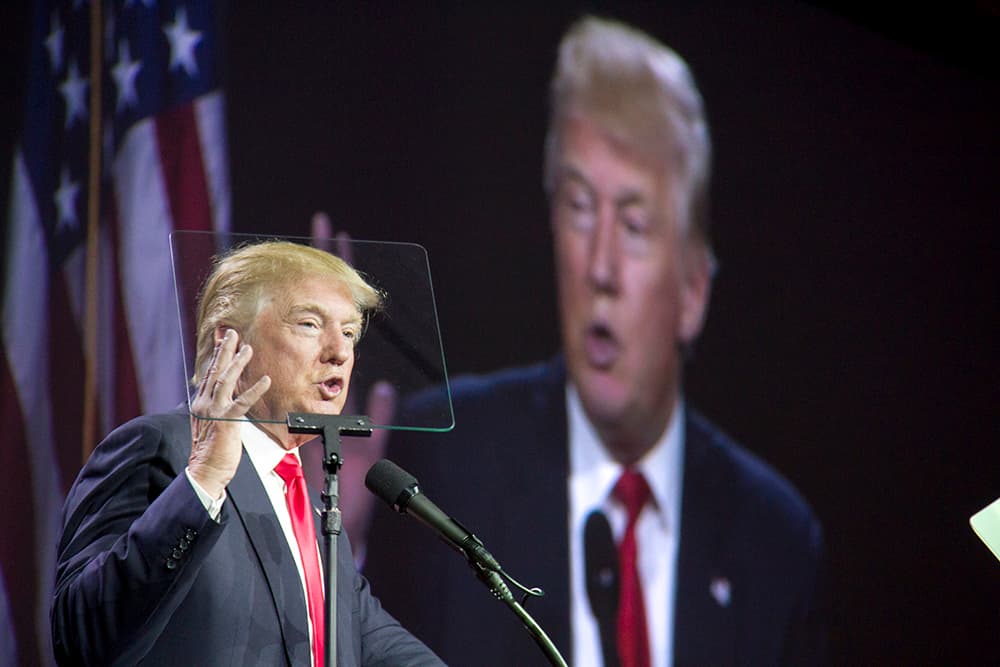
Nearly a quarter of Colorado respondents -- 22 percent -- in a new poll from the University of Denver say that they'd view a Hillary Clinton win next Tuesday as "not legitimate."
Of those who said they would vote for Donald Trump, 47 percent said they would not consider a Clinton win legitimate.
The poll was conducted Oct. 29-31 -- starting a day after Trump visited Colorado and suggested that mail-in ballots could be thrown out, a claim that made the spokesperson for Colorado's Republican Secretary of State say on Twitter, "I can't watch the tweets on what @realDonaldTrump is saying about our incredibly secure elections in CO. I will go nuts."

Clinton, Trump tied; Bennet ahead of Glenn
The DU poll gave Clinton 42 percent of respondents' support and Trump 41 percent in a two-way race, and had them tied at 39 in a four-way race with Gary Johnson (5) and Jill Stein (4). Five percent chose none or other.
In Colorado's U.S. Senate race, incumbent Democrat Michael Bennet led Republican challenger Darryl Glenn 48 to 40.

Lopsided "no" for ColoradoCare, "yes" for aid-in-dying
The poll asked whether respondents would vote yes or no on several statewide ballot issues. The poll returned lopsided results for Amendment 69, which would implement a single-payer health care system paid for with a 10 percent payroll tax, with 67 percent saying they'd vote against it and 25 percent saying they'd vote in favor.
On Amendment 70, which would raise the Colorado minimum wage to $12 an hour by 2020, 54 percent said they'd vote yes, and 41 percent no.
John Elway will be pleased to know that Amendment 71, which would make it harder to amend the state constitution going forward, saw support from 53 percent of respondents, while 34 percent were opposed.
It was an even 48-48 split on Amendment 72, which would raise cigarette taxes.
Sixty-two percent said they'd vote yes on Proposition 106, which allows for physician-assisted suicide for people diagnosed with terminal illness, and 32 percent said no.
Finally, Proposition 107, which would create a presidential primary to replace the party-run caucuses and allow unaffiliated voters to vote in that primary, was 50-40 in favor and Proposition 108, which would allow unaffiliated voters to vote in non-presidential primary elections, was 62-31 in favor.













